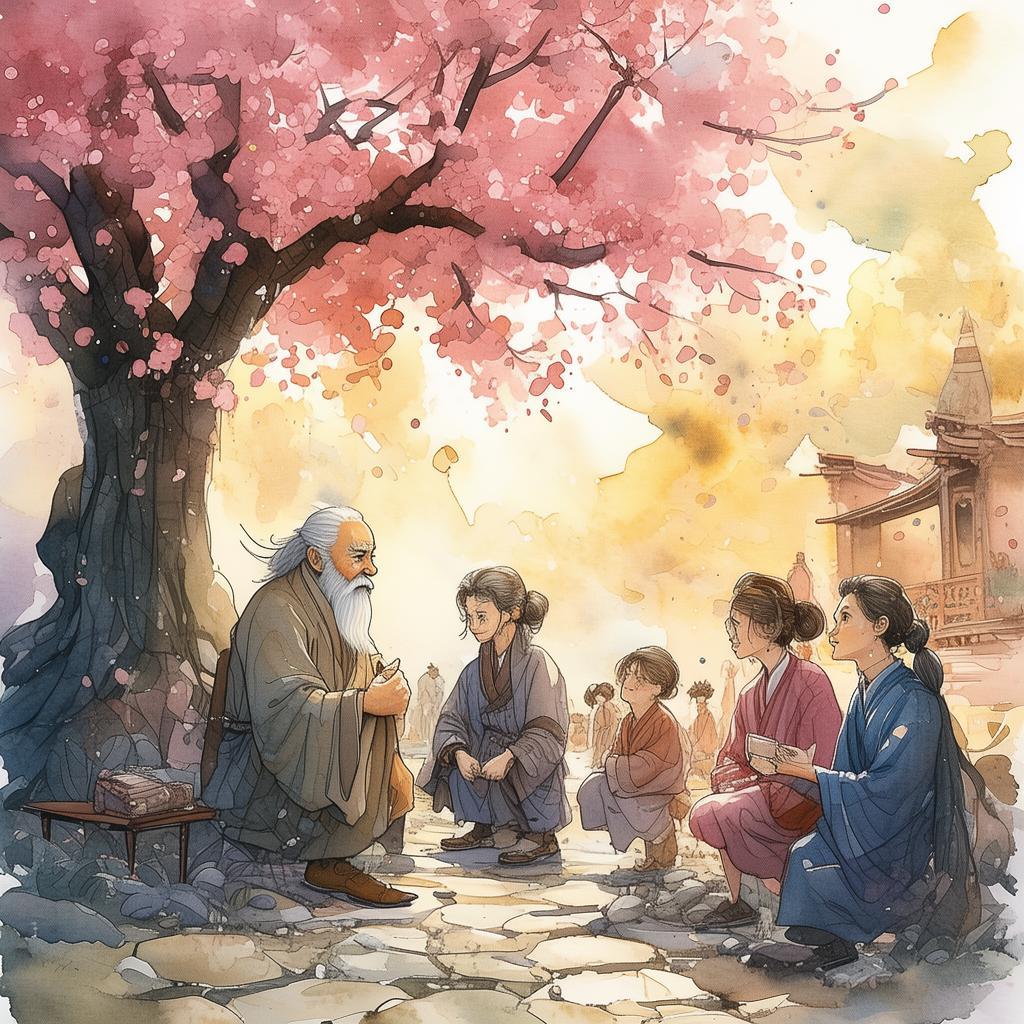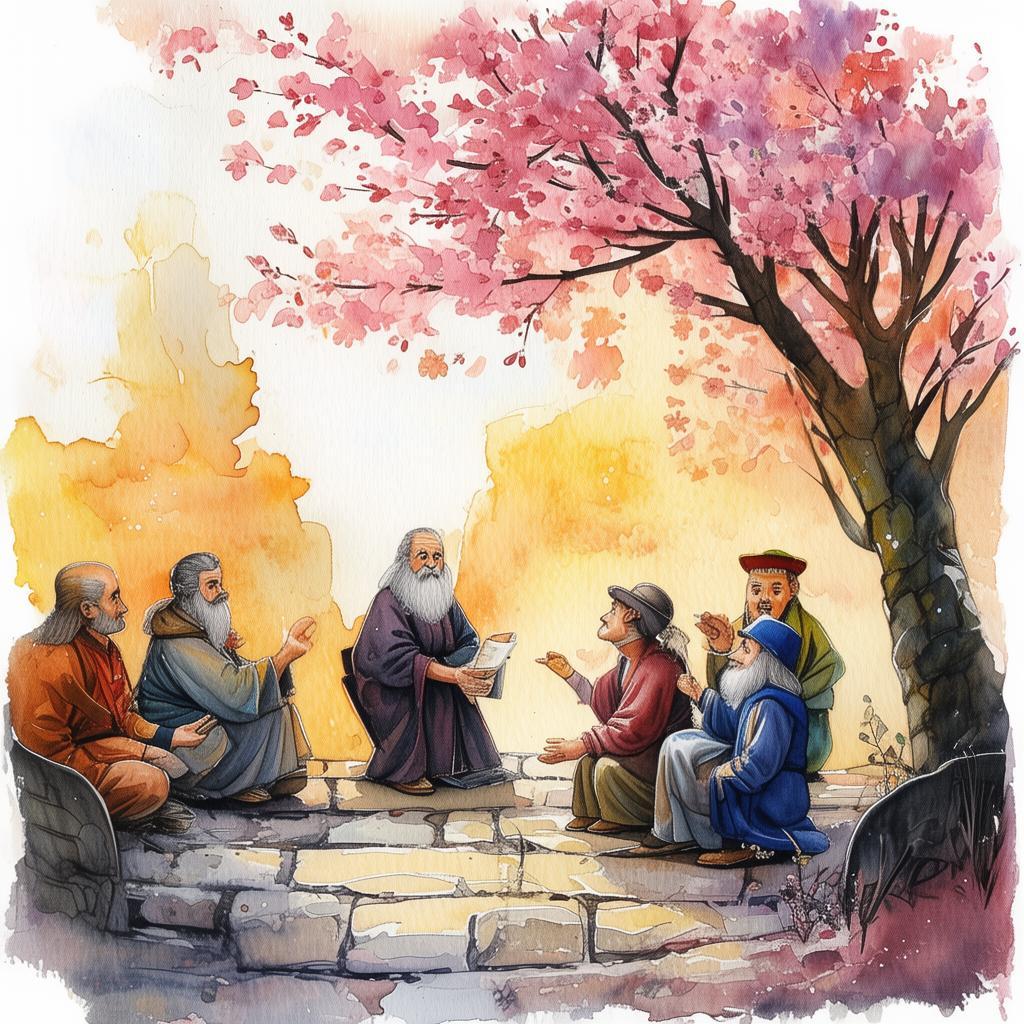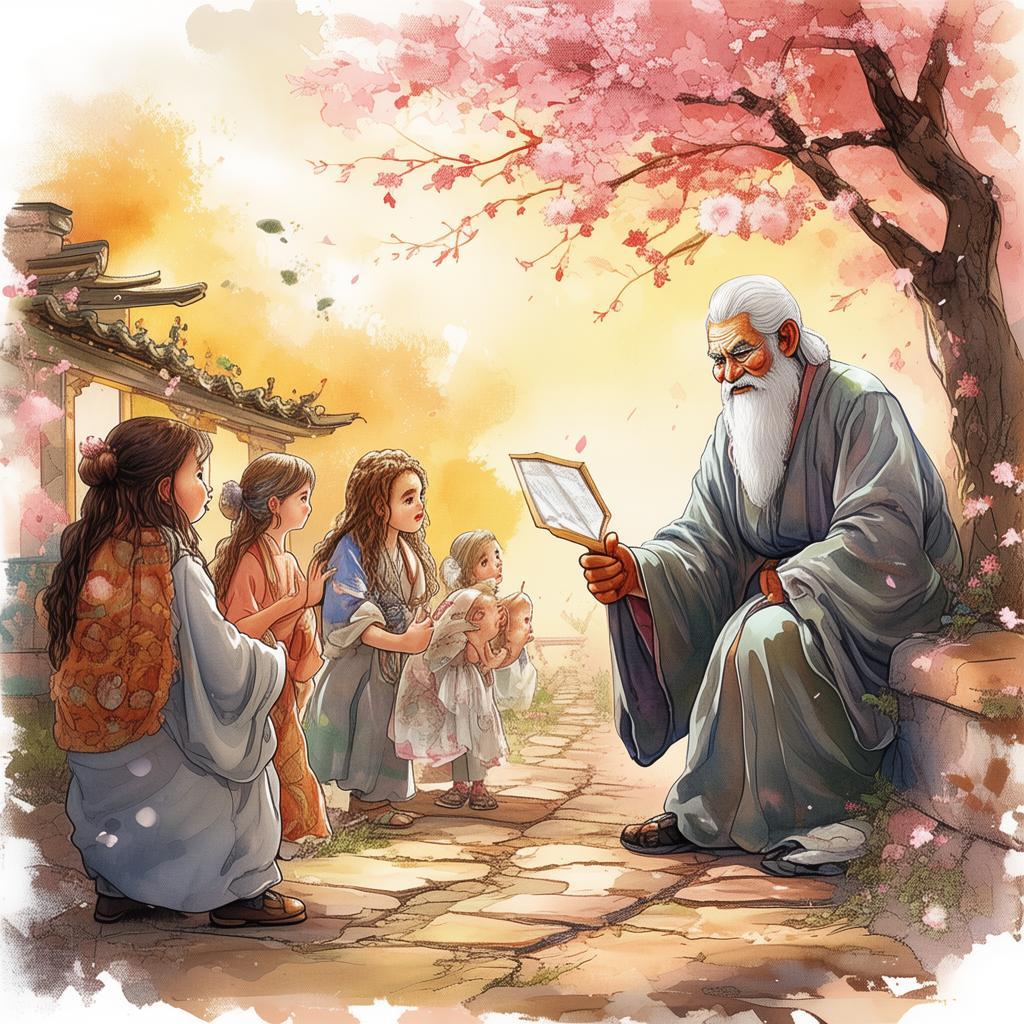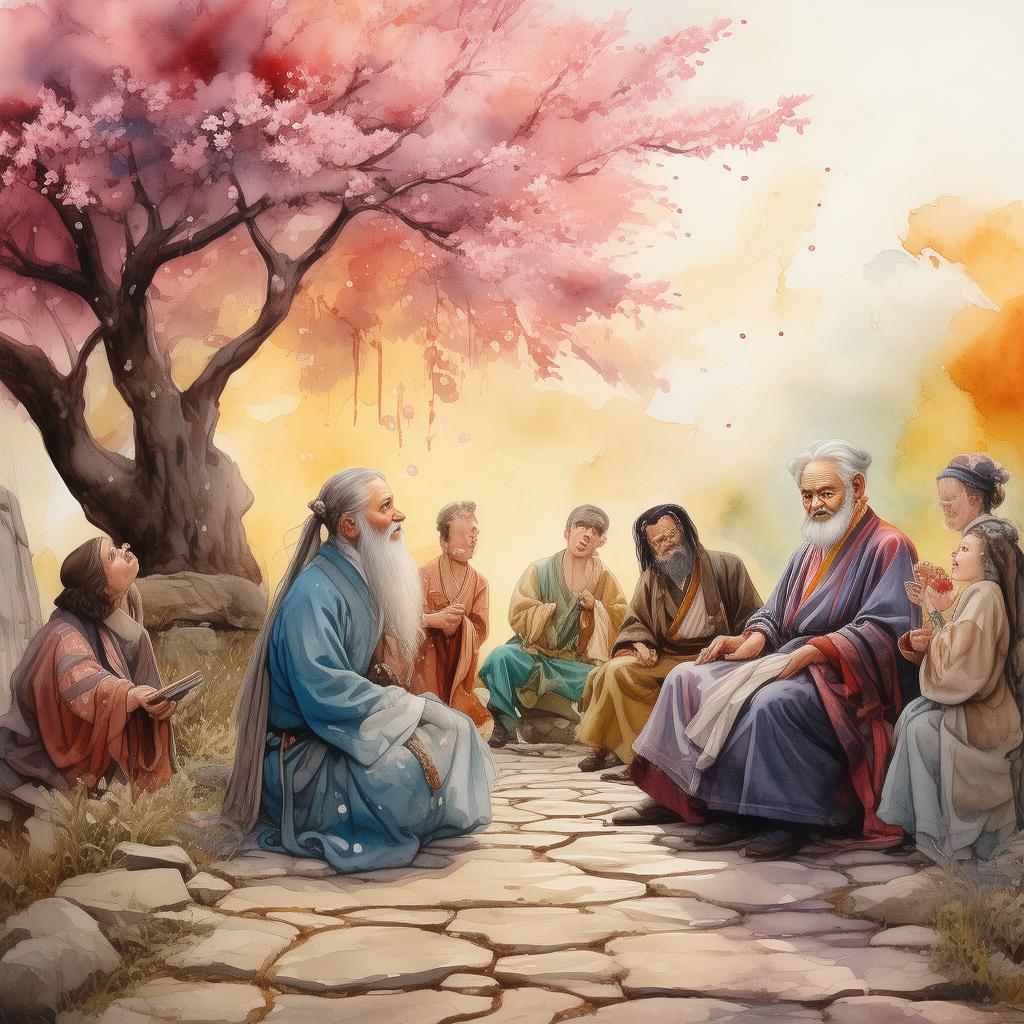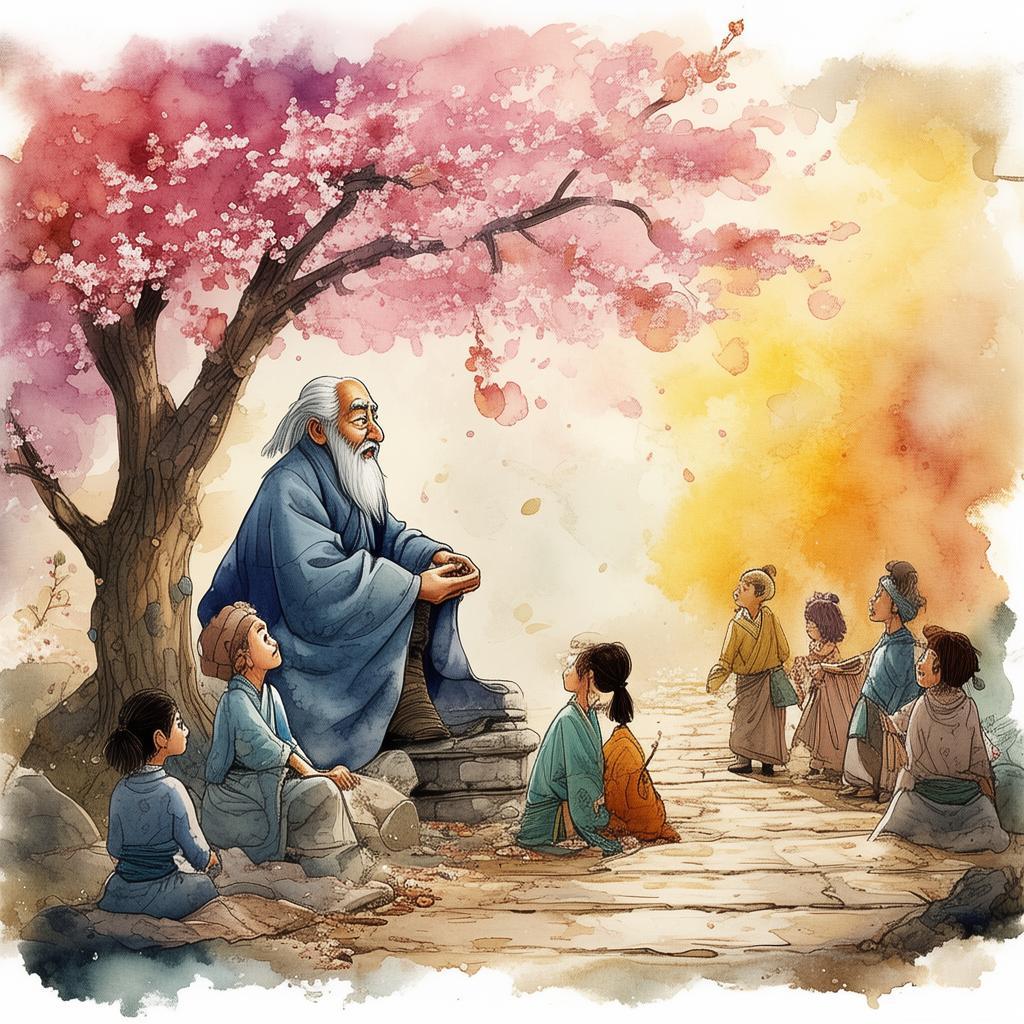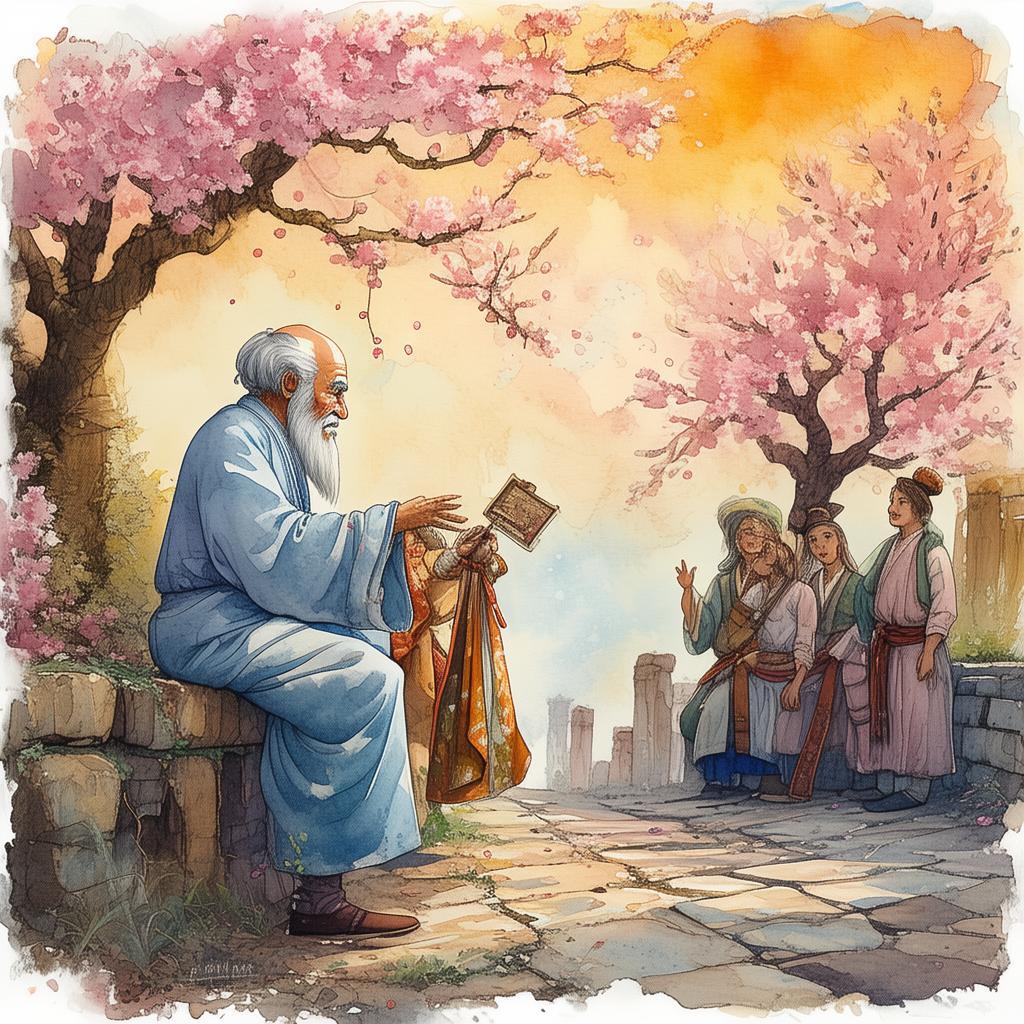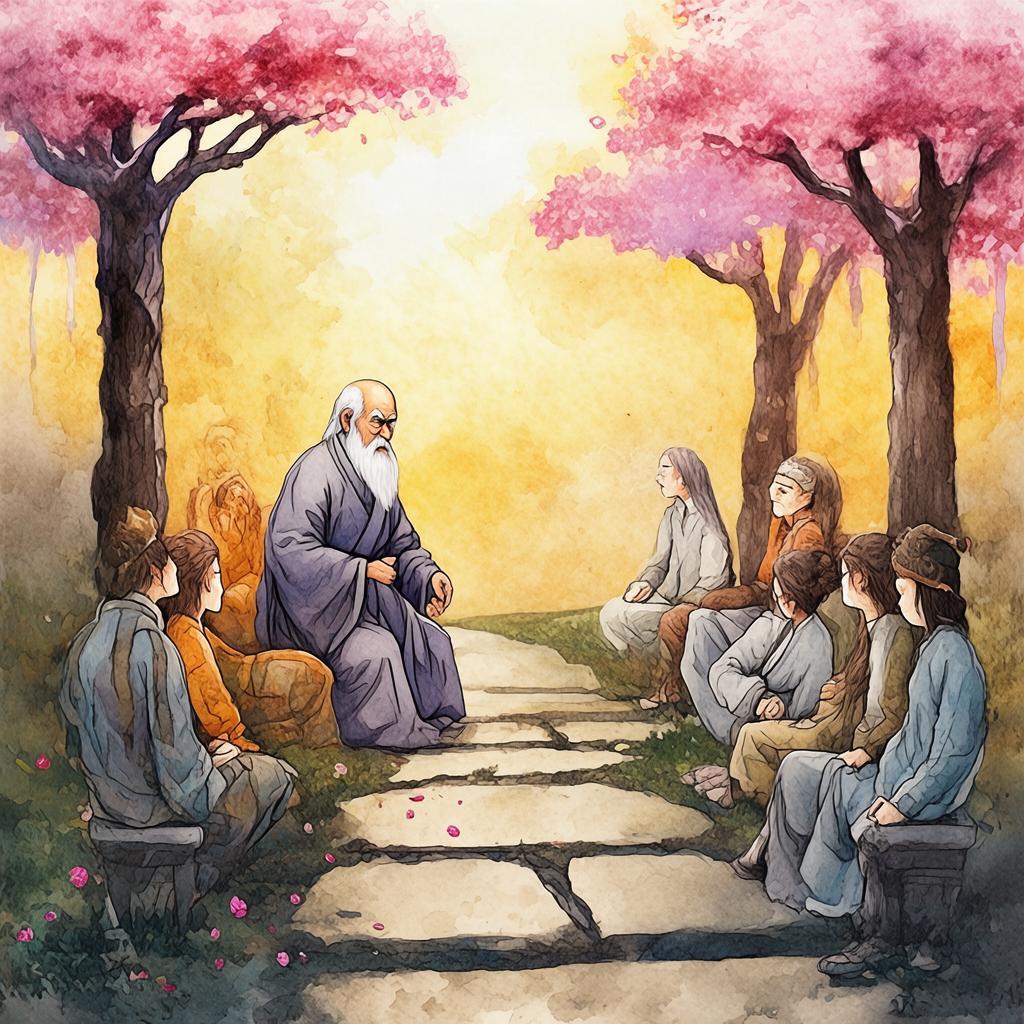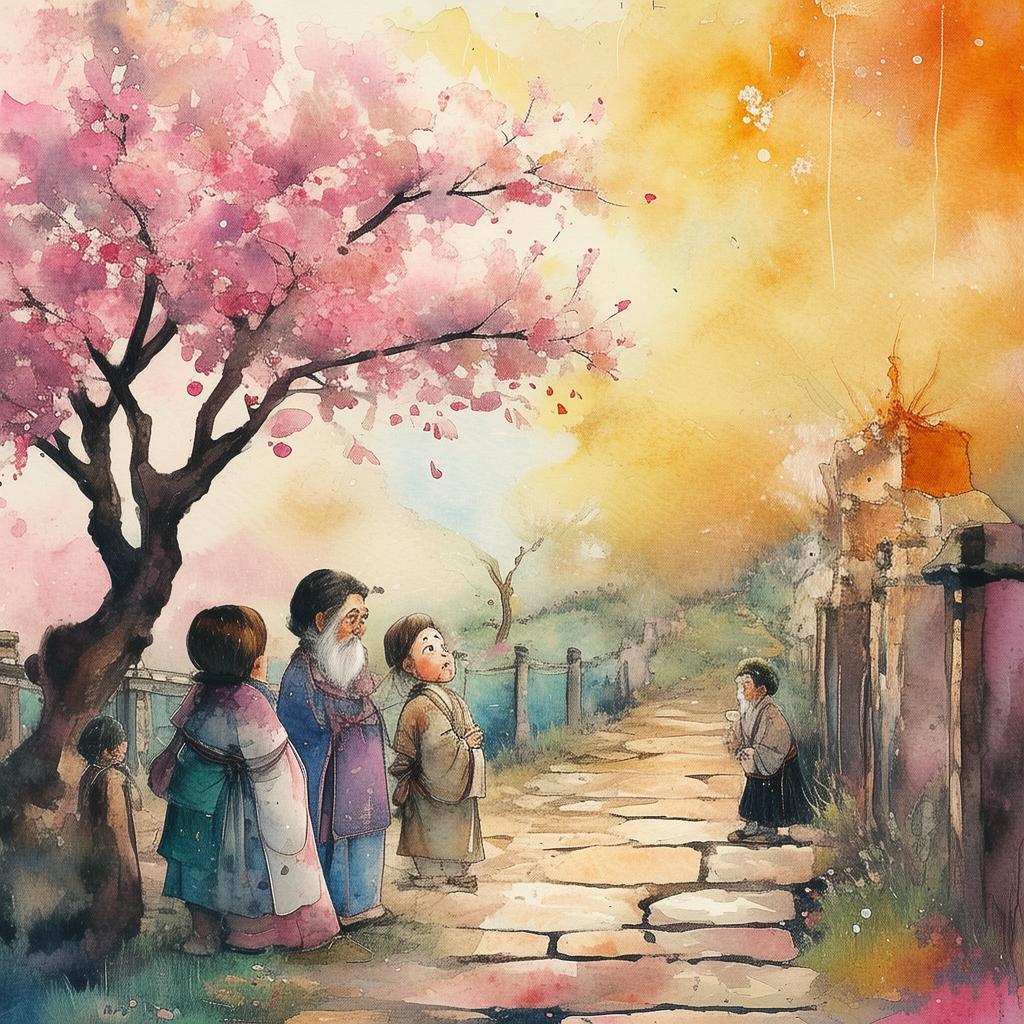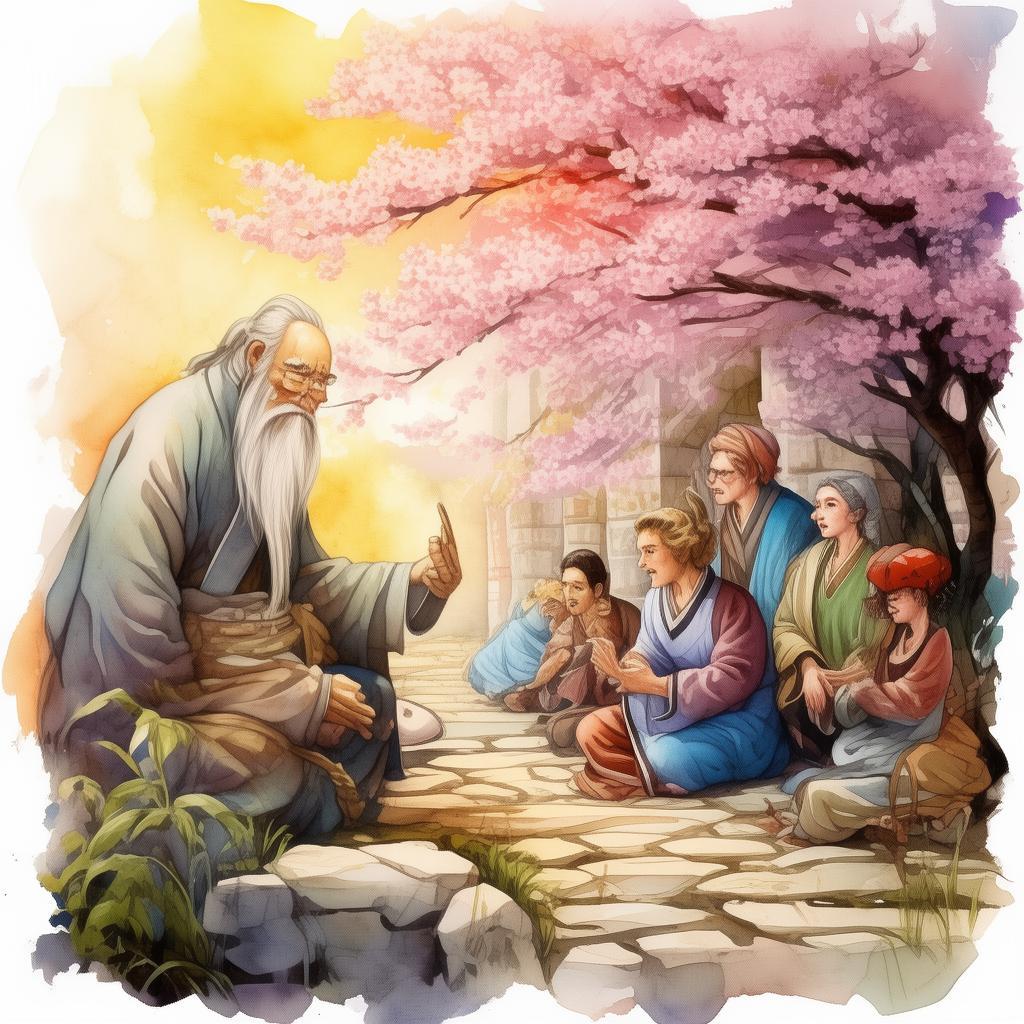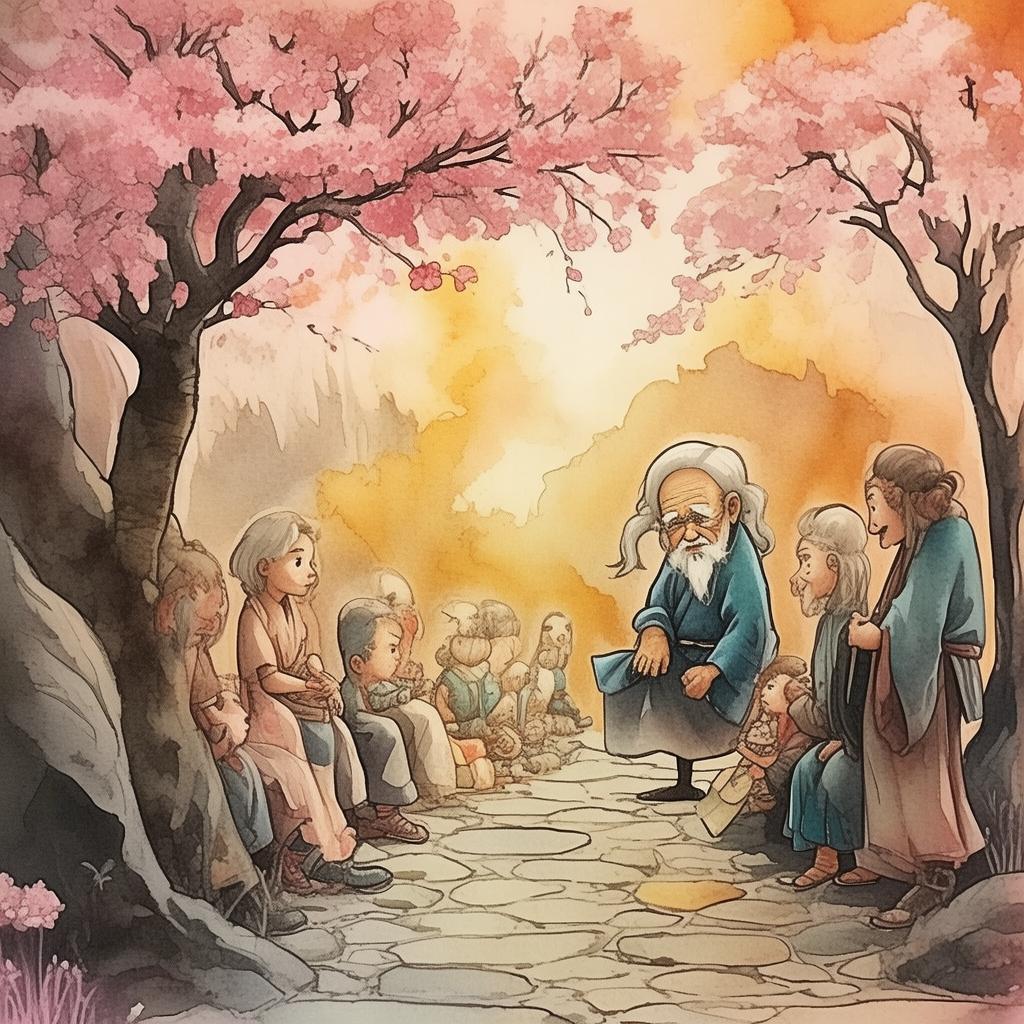The Tortoise and the Philosopher's Paradox
Once upon a time, in the serene town of Eudaimonia, there lived a wise tortoise named Socrates. Known throughout the land for his profound wisdom and calm demeanor, Socrates had a unique ability to ponder the deepest questions of existence with a simplicity that always left his listeners both enlightened and bemused.
One bright morning, a young and ambitious philosopher named Aristotle, eager to uncover the meaning of life, came to visit Socrates. Aristotle had heard tales of the tortoise's profound wisdom and was determined to learn from him.
As Aristotle approached Socrates, he noticed the tortoise sitting quietly on a rock, gazing intently at the horizon. "Good morning, wise Socrates," Aristotle greeted, bowing respectfully.
The tortoise turned its large, reflective eyes towards Aristotle and said, "Good morning, Aristotle. It seems you seek the meaning of life. I, too, have been on a similar quest for many years. Let us begin, then, by walking together and discussing what it means to find meaning."
Aristotle followed Socrates to the edge of a tranquil lake. The two philosophers walked in silence, the only sounds being the gentle rustling of leaves and the occasional splash of a fish.
After a while, Socrates spoke. "Aristotle, have you ever noticed how time flows differently for different creatures?"
Aristotle pondered for a moment before replying, "Yes, I have. For instance, the world seems to move more slowly for me when I am lost in thought."
"Indeed," Socrates said with a gentle smile. "Now, consider the tortoise. Do you think the tortoise perceives time as we do?"
Aristotle was taken aback. "I am not certain. How does the tortoise perceive time?"
"The tortoise," Socrates explained, "moves at a much slower pace than you or I. Therefore, the passage of time is different for the tortoise. The tortoise sees the world in a different light, through a different lens of time."
Aristotle nodded, his mind racing with questions. "But, Socrates, how does this relate to the meaning of life?"
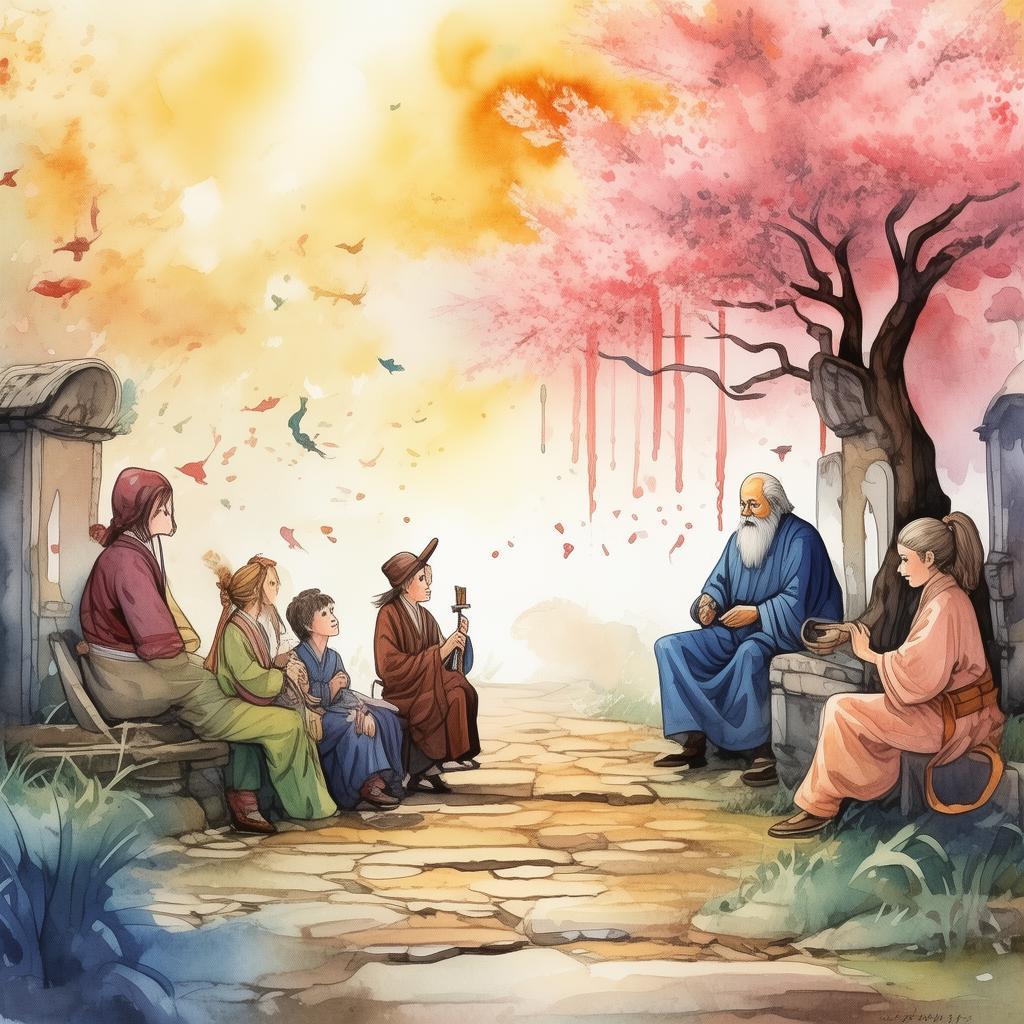
Socrates stopped walking and turned to face Aristotle. "Consider this: if time flows differently for different creatures, how can we, as humans, truly grasp the meaning of life? The answer, my friend, lies in self-reflection and understanding that which is beyond the mere passage of time."
Aristotle, intrigued by the tortoise's words, asked, "But how can we achieve such understanding?"
"By embracing paradox," Socrates said, his eyes twinkling with mirth. "For life is full of paradoxes. We seek certainty, yet life is inherently uncertain. We long for immortality, yet we all know that death is inevitable. These paradoxes are the essence of existence, and through them, we can begin to understand the true nature of life."
Aristotle pondered the tortoise's words and realized that his quest for the meaning of life had been clouded by the pursuit of a single, definitive answer. He had been too caught up in the concept of time, of the present moment, and of the future.
The two philosophers continued their walk, and as they did, Aristotle felt a shift in his understanding of life. He realized that the meaning of life was not something to be discovered, but rather something to be experienced and lived fully.
Days turned into weeks, and Aristotle's transformation was evident. He had become more reflective, more at peace with the paradoxes of life, and more accepting of the passage of time.
One day, Aristotle turned to Socrates and said, "Thank you, Socrates. I now understand that the meaning of life is not a destination but a journey, a continuous process of self-reflection and embracing paradox."
The tortoise nodded, a serene smile on its face. "And so it is, Aristotle. Remember, the journey is as important as the destination. Embrace the paradoxes, for they are the essence of life's richness."
With these words, Aristotle realized that the true meaning of life was not found in the pursuit of answers, but in the questions themselves. And with that understanding, he set forth to live life with a newfound sense of purpose and clarity.
And so, the tale of the tortoise and the philosopher's paradox became a legend, passed down through generations as a reminder that the search for meaning is a lifelong journey, one that is both deeply personal and universally shared.
✨ Original Statement ✨
All articles published on this website (including but not limited to text, images, videos, and other content) are original or authorized for reposting and are protected by relevant laws. Without the explicit written permission of this website, no individual or organization may copy, modify, repost, or use the content for commercial purposes.
If you need to quote or cooperate, please contact this site for authorization. We reserve the right to pursue legal responsibility for any unauthorized use.
Hereby declared.
